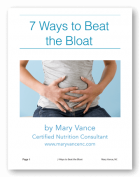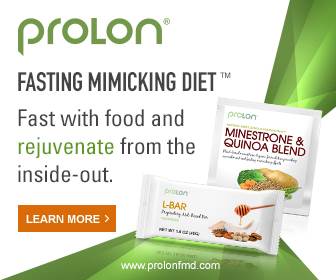I am asked this question several times weekly, so I decided to write about it!
I attended an animal rights workshop when I was 15 (I grew up on a farm raising and training show horses, so animals are near and dear to my heart), and it really opened my eyes to the issues of factory farming, and how animals intended for food are raised and treated. What I learned was shocking, both in terms of the health of the animals and the humans that eat them. So I became a proud vegetarian. Not really putting much thought into what I was eating at age 15, I survived on little more than rice and ramen noodles for the base of my meals. I thought, hey, I’ll just cut out meat. I remember falling asleep in class, having to take long naps when I’d get home from school before I went riding, and my hair became brittle. I became anemic due to my poor diet and was put on iron pills.
A bell went off: what you eat determines your health status. This seems obvious & basic, but I’m telling you, so many people don’t make this connection or even care. McDonald’s is tasty and cheap, until you begin to pay for the medical bills years after treating your body badly. So anyway, I began reading about how to have a healthy vegetarian diet. I learned about combining grains and beans, getting enough protein, and eating more greens. I added in soy for extra protein. This worked great for me–for a while.
Around this time I began working for Planned Parenthood and developing an interest in women’s health. I read all I could about women’s health (Christiane Northrup) and nutrition (Dr. Andrew Weil). I remained a vegetarian for many years (13 total), all through college. I worked at my university’s women’s center and developed an interest in journalism, contributing to various publications.
When I moved out to San Francisco, I experimented very briefly with veganism and never felt worse. I was constantly tired and moody, and I began noticing some issues with my soy-heavy diet. I read more: Julia Ross, Phyllis Balch, Kaayla Daniel, Ann Louise Gittleman, and learned that a diet heavy in processed soy can adversely affect hormone levels (read more about my soy story here). I eliminated soy and added meat back in and instantly felt better, and my hormonal issues resolved. I decided to make a career out of nutrition since I was already dispensing so much advice!
I began studying nutrition at Bauman College and learned that the body’s needs change all the time, and everybody has different physiological needs, because we are all biochemically different! Some people fare well as vegetarians; some need meat. If you are under stress, suffer from depression or anxiety, or are recovering from surgery, you need a more high quality protein-based diet, and beans and rice aint gonna cut it. I get a lot of calls from vegetarians that have major hormonal problems, depression, or infertility and don’t understand why, because isn’t a vegetarian diet the healthiest way to go? That’s another post for another time, but suffice it to say that part of being a nutritionist is to determine the best diet for YOU as an individual, along with how to choose the highest quality foods. And part of my job is to encourage mindfulness around eating so that you know what your body needs. Contact me for more info on my services.

Mary Vance is a Certified Nutrition Consultant and author specializing in digestive health. She combines a science-based approach with natural therapies to rebalance the body. In addition to her 1:1 coaching, she offers courses to help you heal your gut and improve your health. Mary lives in San Francisco and Lake Tahoe in Northern California. Read more about her coaching practice here and her background here.






Hey Mary, interesting post, and I agree with almost everything you say, but I’m compelled to point out that beans & rice are not the only option for veg protein. Besides being an amazing staple food they go great with the many other available plant-based sources of protein such as hemp seed, chickpeas, lentils, peas, nuts, and other seeds, legumes, and grains (all of which I’m sure you’re aware of). Meat does not provide any higher-quality protein than plants — at best that is a matter of opinion, and there are plenty of nutritionists and athletes who suggest the opposite — and it’s disingenuous to imply that people recovering from surgery or suffering from the myriad ailments you listed would be healthier eating animals. Also psychological conditions like depression and anxiety are not brought upon (or fixed) by diet alone, unless you disregard the entire field of psychology?
Sorry, I enjoy reading your blog but you do tend to consistently bash a vegetarian diet! It’s also interesting to note that in your own dietary history you swapped meat back in for soy without (afaik) trying vegetarianism/veganism without any or as much soy.
Hi Dave,
Thanks for your comment–It is certainly not my intent to bash vegetarianism, but I do have to say that the majority of people I see with health problems who have been eating vegetarian improve dramatically from adding in animal protein, mostly because they were not eating properly for their physiology (even on a well designed veg diet). You’ve probably noticed that I write a lot about metabolic typing. We are all biochemically different, and those who are “protein types,” higher oxidizers with fast metabolisms, can crash, gain weight, or develop other problems eating higher carb/veg or legume-based diets. This is not to say that not everyone does well as a vegetarian–carb types do very well with a veg diet, but I often do not work with these people (mostly because they are feeling fine and don’t need my help), but those with higher levels of stress or depressions and anxiety need more and high quality proteins. Depression/anxiety/obesity are associated with neuron bundle damage in the brain (meaning serotonin or dopamine uptake is altered), increasing one’s need for higher purine proteins. Proteins break down into amino acids that are precursors to neurotransmitters. These folks are not getting the amounts of protein, or are not absorbing enough protein from a plant-based diet. Those with adrenal exhaustion or candida overgrowth also have a greater need for higher purine proteins.
With that said, it’s my job to design a diet/lifestyle plan that works with an individual’s unique health history, needs, and physiology. I do metabolic typing with everyone to determine what levels and what kind of proteins & carbs they need (everyone needs good fats regardless). The body’s needs change all the time, so one diet is not necessarily right for the duration of one’s life.